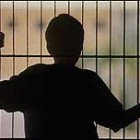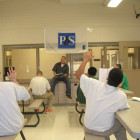
Gateway to Adult Court for Young Defendants Slowly Closing
|
In a Georgia courtroom last month, 11-year-old Dalton Archer plead guilty to murdering his father’s girlfriend near Christmastime last year, when he was 10. Archer automatically went through juvenile court, something that took years of fighting for a similar defendant in Pennsylvania. Though changes are happening across the country, not all young people are guaranteed a juvenile court hearing instead of adult court for very serious crimes. In 1997, Oklahoma law specified that children as young as 7 could be handed to adult courts, according to a 1998 report from the federal Office of Juvenile Justice and Delinquency Prevention. At that time, about one-third of the states set some floor age between 10 and 15 for eligibility for transfer to criminal court.








